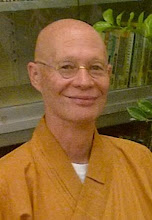Many people coming to test the waters of Buddhism for the first time often wonder where to start. There are literally hundreds of sutras with each school of Buddhism focusing on specific sutras that are at their foundation.
It is clear that Buddhism is about the issue of suffering and how to overcome it. Suffering takes on many forms from severe pain and illness and death to the petty annoyances that plague us on almost a daily basis. Buddhism teaches us to live a supremely happy and value centred life with the means to end the cycle of birth and death which is suffering.
The sutra of the Eight Awakenings is a very short sutra. In fact many Chinese monks used to learn this one by heart not only because of its brevity but also because it contained within it the essential of Buddhism.
I often call it the Mediators’ Sutra as it is a foundation sutra for all meditation work. It is well worth contemplating these Eight Awakenings carefully examining them in the light of your own life. I have included them here in their entirety.
Buddhist Disciples! At all times, day and night, sincerely recite and bear in mind these eight truths that cause great people to awaken.
The First Awakening:
The world is impermanent. Countries are perilous and fragile. The body is a source of pain, ultimately empty. The five skandhas are not the true self. Life and Death is nothing but a series of transformations—hallucinatory, unreal, uncontrollable. The intellect is a wellspring of turpitude, the body a breeding ground of offenses. Investigate and contemplate these truths. Gradually break free of death and rebirth.
The Second Awakening:
Too much desire brings pain. Death and rebirth are wearisome ordeals, originating from our thoughts of greed and lust. By lessening desires we can realize absolute truth and enjoy peace, freedom, and health in body and mind.
The Third Awakening:
Our minds are never satisfied or content with just enough. The more we obtain, the more we want. Thus we create offenses and perform evil deeds. Bodhisattvas don’t wish to make these mistakes. Instead, they choose to be content. They nurture the Way, living a quiet life in humble surroundings —their sole occupation, cultivating wisdom.
The Fourth Awakening:
Idleness and self-indulgence are the downfall of people. With unflagging vigor, great people break through their afflictions and baseness. They vanquish and defeat the four kinds of demons, and escape from the prison of the five skandhas.
The Fifth Awakening:
Stupidity and ignorance are the cause of death and rebirth. Bodhisattvas apply themselves and deeply appreciate study and erudition, constantly striving to expand their wisdom and refine their eloquence. Nothing brings them greater joy than teaching and transforming living beings.
The Sixth Awakening:
Suffering in poverty breeds deep resentment. Wealth unfairly distributed creates ill-will and conflict among people. Thus, Bodhisattvas practice giving. They treat friend and foe alike. They do not harbor grudges or despise amoral people.
The Seventh Awakening:
The five desires are a source of offenses and grief. Truly great people, laity included, are not blighted by worldly pleasures. Instead, they aspire to don the three-piece precept robe and the blessing bowl of monastic life. Their ultimate ambition is to leave the home life and to cultivate the Path with impeccable purity. Their virtuous qualities are lofty and sublime; their attitude towards all creatures, kind and compassionate.
The Eighth Awakening:
Like a blazing inferno, birth and death are plagued with suffering and affliction. Therefore, great people resolve to cultivate the Great Vehicle, to rescue all beings, to endure hardship on behalf of others, and to lead everyone to ultimate happiness.
These are the Eight Truths that all Buddhas, Bodhisattvas and great people awaken to. Once awakened, they even more energetically continue to cultivate the Path. Steeping themselves in kindness and compassion, they grow in wisdom. They sail the Dharma ship across to Nirvana’s shore, and then return on the sea of birth and death to rescue living beings. They use these Eight Truths to show the proper course for living beings, causing them to recognize the anguish of birth
and death. They inspire all to forsake the five desires, and to cultivate their minds in the manner of Sages.
If Buddhist disciples recite this Sutra on the Eight Awakenings, and constantly ponder its meaning, they will certainly eradicate boundless offenses, advance towards Bodhi, and will quickly realize Proper Enlightenment. They will always be free of birth and death, and will abide in eternal bliss
Saturday, August 13, 2011
Subscribe to:
Post Comments (Atom)

No comments:
Post a Comment